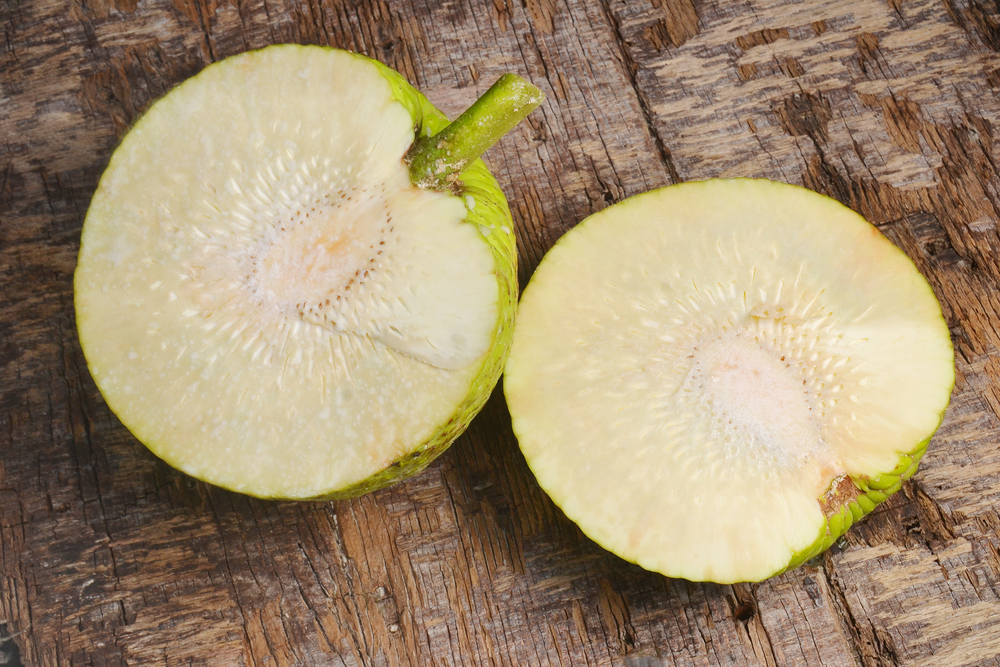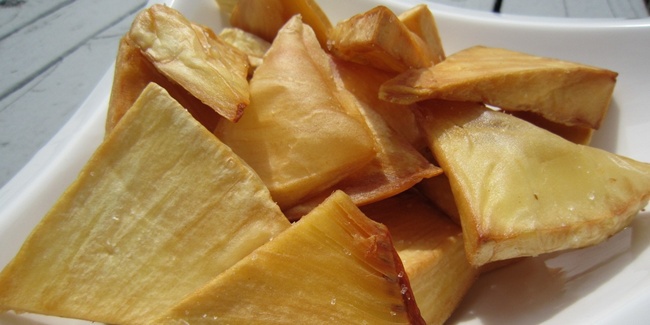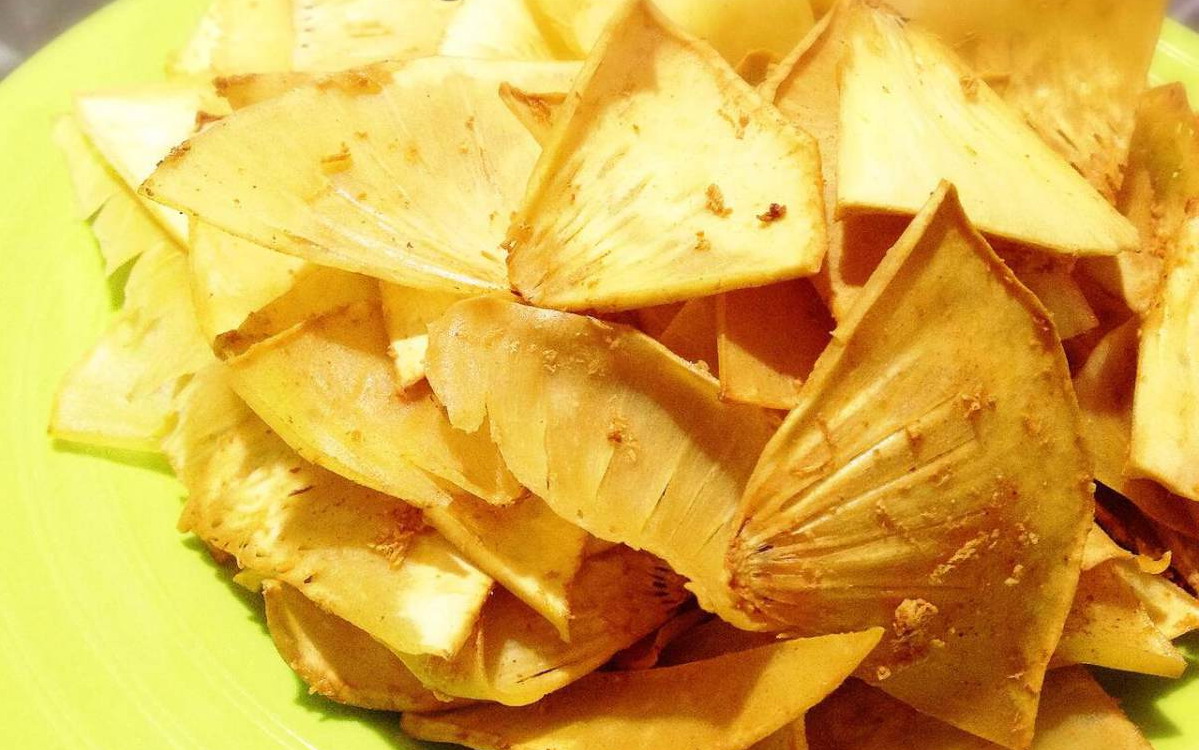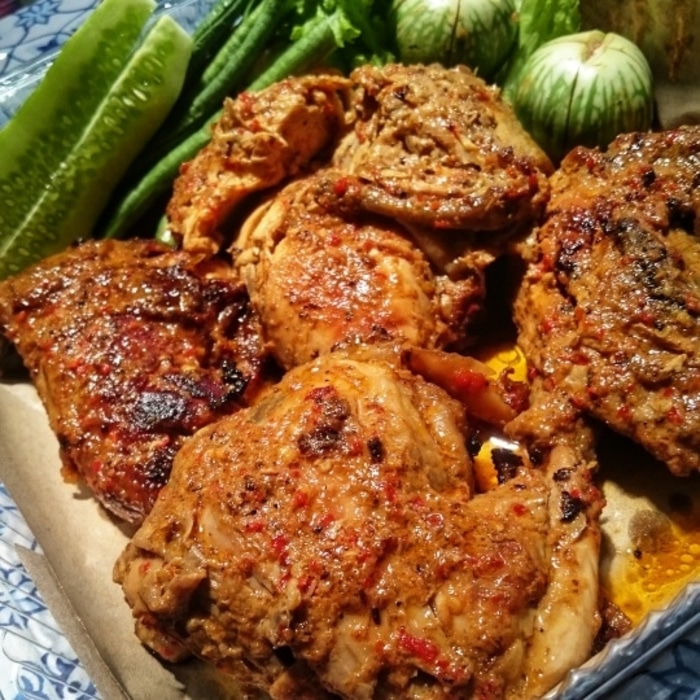If you’re living in Indonesia, you have the opportunity to try various fruits that you probably would never find anywhere else. The tropical climate of Indonesia is a perfect habitat for many cultivars of fruits to grow. It even allows certain fruits to grow in the wild, on their own, in abundance. How wonderful is that?

One of that many fruits that is grown wildely is Sukun. In English, it is more known as breadfruit and the scientific name is Artocarpus altilis. The tree is a species of flowering tree in the mulberry and jackfruit family, originating in the South Pacific. It has hundreds of varieties and thousands of common names varying according to its geographic distribution, and is cultivated in some 90 countries.
Sukun trees grow to height of 26 m. The large and thick leaves are deeply cut into pinnate lobes. A single tree produces up to 200 or more grapefruit-sized fruits per season, requiring limited care.
Shape of the fruit is round in the size of a grapefruit (or football for certain species) weighing 0.25 – 6 kg with the skin resembling jackfruit. In Indonesia, Sukun fruit is available all year long; but somewhat rare when not in season. In Java, for example, people usually don’t sell this in the market because there are too many Sukun plants where people can get the fruit directly from the tree. It is also often neglected!
Sukun is very rich in starch, which transforms to sugars when very ripe. The carbohydrate content is a s good as or better than other widely used major carbohydrate foods—no wonder it is a staple in certain countries. It is also a better source of protein than cassava and is comparable to sweet potato and banana.
Foods made of Sukun
In Indonesia, Sukun is not staple food. The fruit is more popular as snack, whether it is deep-fried, boiled, or steamed. You can modify the spice used to season the fruit and the cooking methods.
Before processing Sukun, there is a specific method to wash the flesh due to the resin that Sukun produces. When you just pick it up from the tree, it’s best to leave the fruit for a while to get rid of that resin (be careful to not stain your clothes with the resin!). When you peel it off, slice the fruit into any size you want, and soak it in water and salt solution for around 15 minutes. Rinse the fruit under running water, make sure that the flesh is no longer sticky. Then it’s ready to be processed further.

The most popular snack made of Sukun is Sukun Goreng (deep-fried sukun). It is typically available at Gorengan stall. The snack is made of sliced young Sukun flesh that is seasoned and deep fried. Some people prefer the overripe Sukun fruit to be fried since it tastes sweeter and has softer texture.

The other variety of snacks made of Sukun is Sukun Chips. Similar to Sukun Goreng, the chips are also made of very young Sukun fruit. The flesh is sliced thinly, and is soaked in water and salt solution to get rid of resin and harden the texture. It is then deep fried until crispy. Sukun Chips are available at supermarkets or Oleh-oleh (souvenir) shops in Indonesia, especially in Java.
Other than that, people also love to steam Sukun fruit without any additional seasoning or flavor. Ripe Sukun tastes the best for this version of snack. Pair it with a cup of hot tea or coffee and it’s perfect for evening snack!
Health benefits
Breadfruit offers almost half the daily recommended fiber value in one serving and more than 100 percent of the vitamin C you need each day, not to mention over a dozen other important nutrients, such as:
Prevents and reverses oxidative stress
All edible parts of Sukun contain an impressive antioxidant load and offer the potential for many positive bioactive processes due to their high presence of phenols. With antioxidants, you can slow the age-related breakdown of your cells as well as reduce your risk of cancer, heart disease and stroke (among other diseases).
Low fat content
Sukun is low in fat, as 1 cup of the fruit contains only around 0.51 gram. Due to its low fat content, you might want to include this on a low-fat diet. Steamed Sukun would be the best option as it is free from fat and sugar.
Boosts your immunity
The presence of anti-inflammatory bioflavonoids in Sukun is especially important to reduce your risk of disease. It contains a fairly large quantity of Vitamin B1, which is also a part of what maintains muscle tone along the walls of the digestive tract, where the majority of the immune system is located.
Reduces diabetes
Sukun contains a lot of fiber which helps in suppressing impact of diabetes in human body. Fiber takes a lot of energy to digest and thus controls level of energy store, depleting sugar content in blood.




